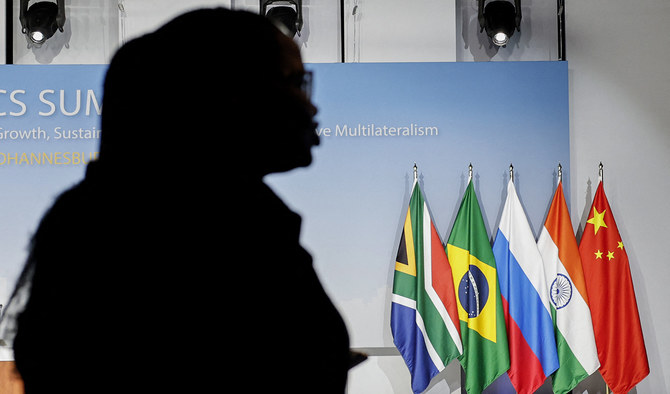ISLAMABAD: Pakistan has filed an application to join the BRICS group of nations in 2024, Islamabad's newly appointed ambassador to Moscow Muhammad Khalid Jamali has told state-owned news agency TASS in an interview, adding that Islamabad would not support anti-Russia sanctions.
The BRICS group of major emerging economies comprises Brazil, Russia, India, China and South Africa. The bloc, whose creation was initiated by Russia, was founded as an informal club in 2009 to provide a platform for its members to challenge a world order dominated by the United States and its Western allies. The group is not a formal multilateral organisation like the United Nations, World Bank or the Organisation of the Petroleum Exporting Countries (OPEC) but heads of state and government of the member nations convene annually with each nation taking up a one-year rotating chairmanship of the group.
Countries like Pakistan who want to join BRICS see it as an alternative to global bodies viewed as dominated by the traditional Western powers and hope membership will unlock benefits including development finance, and increased trade and investment.
"Pakistan would like to be part of this important organization and we are in process of contacting member countries for extending support to Pakistan’s membership in general and Russian Federation in particular," Jamali told TASS on Wednesday, confirming that Islamabad had already applied and planned to join the group under Russia’s presidency in 2024.
Russian Deputy Foreign Minister Sergey Ryabkov said in early October BRICS planned to agree on a list of candidates for partner-state status ahead of the upcoming summit in Kazan in 2024. During Russia’s BRICS chairmanship, he said, special attention would be paid to expand the “circle of BRICS friends,” including in Latin America.
Relations between Pakistan and Russia have improved in recent years, with the South Asian nation snapping up crude oil that Moscow has discounted after its exports were banned from European markets over Russia's invasion of Ukraine. Pakistan's first crude oil cargo, imported by the government, arrived in June.
“It is not in Pakistan’s economic interests to join anti-Russian sanctions because our bilateral trade is growing,” Jamali told TASS. “Pakistan’s imports from Russia this year grew by 154% compared to the previous year, which is a remarkable figure.”
The ambassador said Pakistan was ready for talks with Russia about the use of the Mir card payment system for electronic funds transfers. Jamali said Pakistan would also consider trading in national currencies.
“Switching to national currencies in mutual settlements is a matter, which is being discussed not only bilaterally but also at the level of multilateral organizations such as the SCO [Shanghai Cooperation Organisation] and Pakistan is ready to consider all available options that can help make settlements faster and give impetus to our trade,” the diplomat said.
“The same applies to the Mir cards … We are open to all proposals from our Russian colleagues, which are beneficial for both sides.”


















